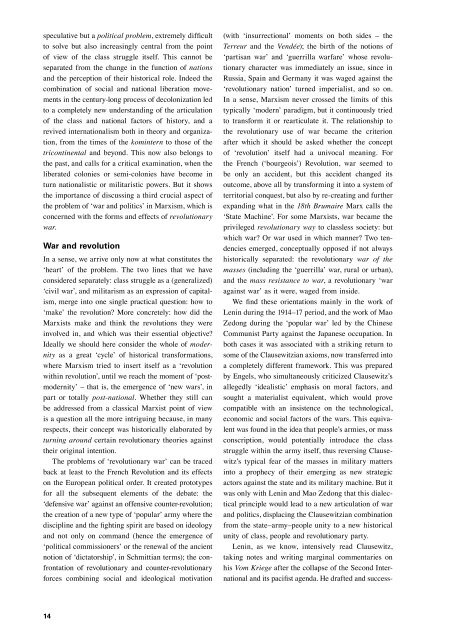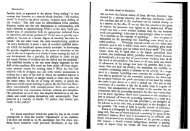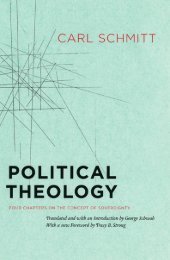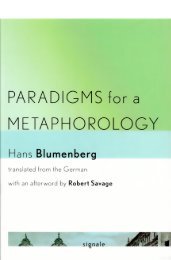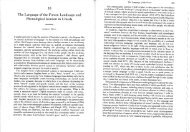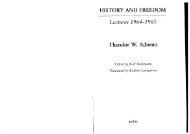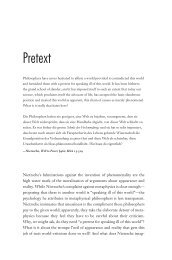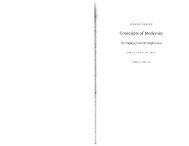Balibar Marxism and War.pdf - Townsend Humanities Lab
Balibar Marxism and War.pdf - Townsend Humanities Lab
Balibar Marxism and War.pdf - Townsend Humanities Lab
Create successful ePaper yourself
Turn your PDF publications into a flip-book with our unique Google optimized e-Paper software.
speculative but a political problem, extremely difficult<br />
to solve but also increasingly central from the point<br />
of view of the class struggle itself. This cannot be<br />
separated from the change in the function of nations<br />
<strong>and</strong> the perception of their historical role. Indeed the<br />
combination of social <strong>and</strong> national liberation movements<br />
in the century-long process of decolonization led<br />
to a completely new underst<strong>and</strong>ing of the articulation<br />
of the class <strong>and</strong> national factors of history, <strong>and</strong> a<br />
revived internationalism both in theory <strong>and</strong> organization,<br />
from the times of the komintern to those of the<br />
tricontinental <strong>and</strong> beyond. This now also belongs to<br />
the past, <strong>and</strong> calls for a critical examination, when the<br />
liberated colonies or semi-colonies have become in<br />
turn nationalistic or militaristic powers. But it shows<br />
the importance of discussing a third crucial aspect of<br />
the problem of ‘war <strong>and</strong> politics’ in <strong>Marxism</strong>, which is<br />
concerned with the forms <strong>and</strong> effects of revolutionary<br />
war.<br />
<strong>War</strong> <strong>and</strong> revolution<br />
In a sense, we arrive only now at what constitutes the<br />
‘heart’ of the problem. The two lines that we have<br />
considered separately: class struggle as a (generalized)<br />
‘civil war’, <strong>and</strong> militarism as an expression of capitalism,<br />
merge into one single practical question: how to<br />
‘make’ the revolution? More concretely: how did the<br />
Marxists make <strong>and</strong> think the revolutions they were<br />
involved in, <strong>and</strong> which was their essential objective?<br />
Ideally we should here consider the whole of modernity<br />
as a great ‘cycle’ of historical transformations,<br />
where <strong>Marxism</strong> tried to insert itself as a ‘revolution<br />
within revolution’, until we reach the moment of ‘postmodernity’<br />
– that is, the emergence of ‘new wars’, in<br />
part or totally post-national. Whether they still can<br />
be addressed from a classical Marxist point of view<br />
is a question all the more intriguing because, in many<br />
respects, their concept was historically elaborated by<br />
turning around certain revolutionary theories against<br />
their original intention.<br />
The problems of ‘revolutionary war’ can be traced<br />
back at least to the French Revolution <strong>and</strong> its effects<br />
on the European political order. It created prototypes<br />
for all the subsequent elements of the debate: the<br />
‘defensive war’ against an offensive counter-revolution;<br />
the creation of a new type of ‘popular’ army where the<br />
discipline <strong>and</strong> the fighting spirit are based on ideology<br />
<strong>and</strong> not only on comm<strong>and</strong> (hence the emergence of<br />
‘political commissioners’ or the renewal of the ancient<br />
notion of ‘dictatorship’, in Schmittian terms); the confrontation<br />
of revolutionary <strong>and</strong> counter-revolutionary<br />
forces combining social <strong>and</strong> ideological motivation<br />
(with ‘insurrectional’ moments on both sides – the<br />
Terreur <strong>and</strong> the Vendée); the birth of the notions of<br />
‘partisan war’ <strong>and</strong> ‘guerrilla warfare’ whose revolutionary<br />
character was immediately an issue, since in<br />
Russia, Spain <strong>and</strong> Germany it was waged against the<br />
‘revolutionary nation’ turned imperialist, <strong>and</strong> so on.<br />
In a sense, <strong>Marxism</strong> never crossed the limits of this<br />
typically ‘modern’ paradigm, but it continuously tried<br />
to transform it or rearticulate it. The relationship to<br />
the revolutionary use of war became the criterion<br />
after which it should be asked whether the concept<br />
of ‘revolution’ itself had a univocal meaning. For<br />
the French (‘bourgeois’) Revolution, war seemed to<br />
be only an accident, but this accident changed its<br />
outcome, above all by transforming it into a system of<br />
territorial conquest, but also by re-creating <strong>and</strong> further<br />
exp<strong>and</strong>ing what in the 18th Brumaire Marx calls the<br />
‘State Machine’. For some Marxists, war became the<br />
privileged revolutionary way to classless society: but<br />
which war? Or war used in which manner? Two tendencies<br />
emerged, conceptually opposed if not always<br />
historically separated: the revolutionary war of the<br />
masses (including the ‘guerrilla’ war, rural or urban),<br />
<strong>and</strong> the mass resistance to war, a revolutionary ‘war<br />
against war’ as it were, waged from inside.<br />
We find these orientations mainly in the work of<br />
Lenin during the 1914–17 period, <strong>and</strong> the work of Mao<br />
Zedong during the ‘popular war’ led by the Chinese<br />
Communist Party against the Japanese occupation. In<br />
both cases it was associated with a striking return to<br />
some of the Clausewitzian axioms, now transferred into<br />
a completely different framework. This was prepared<br />
by Engels, who simultaneously criticized Clausewitz’s<br />
allegedly ‘idealistic’ emphasis on moral factors, <strong>and</strong><br />
sought a materialist equivalent, which would prove<br />
compatible with an insistence on the technological,<br />
economic <strong>and</strong> social factors of the wars. This equivalent<br />
was found in the idea that people’s armies, or mass<br />
conscription, would potentially introduce the class<br />
struggle within the army itself, thus reversing Clausewitz’s<br />
typical fear of the masses in military matters<br />
into a prophecy of their emerging as new strategic<br />
actors against the state <strong>and</strong> its military machine. But it<br />
was only with Lenin <strong>and</strong> Mao Zedong that this dialectical<br />
principle would lead to a new articulation of war<br />
<strong>and</strong> politics, displacing the Clausewitzian combination<br />
from the state–army–people unity to a new historical<br />
unity of class, people <strong>and</strong> revolutionary party.<br />
Lenin, as we know, intensively read Clausewitz,<br />
taking notes <strong>and</strong> writing marginal commentaries on<br />
his Vom Kriege after the collapse of the Second International<br />
<strong>and</strong> its pacifist agenda. He drafted <strong>and</strong> success-<br />
14


